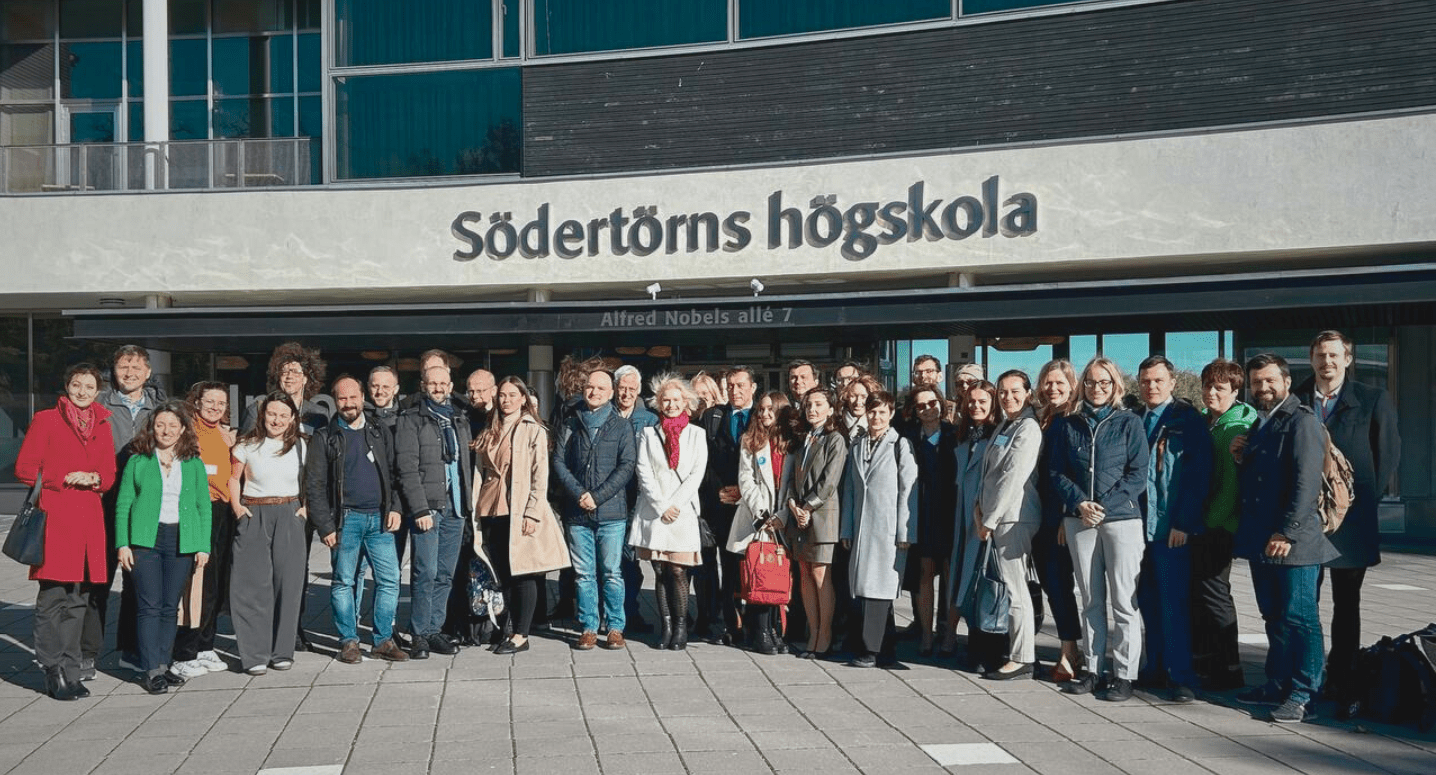
We attended the Baltic Sea Region and Eastern Europe Social Resilience Conference in Sweden
The Crisis Research Centre participated in a conference on societal sustainability in the Baltic Sea and Eastern Europe region at Södertörn University (Sweden) in October.
October took us to Södertörn University for the Baltic and Eastern European Social Conservation Conference “How to Be Prepared? Governance for Societal Resilience in the Baltic Sea Region and Eastern Europe”.
This conference was mainly dedicated to the lessons that the Russian war in Ukraine has brought for the hinterland and society there. The most important point we take from it is the following: the main reason why the 3-day war in Ukraine, originally planned by Russia, has reached 600 days, is the resilience of the society.
In war, what happens in the rear is just as important as what happens on the front. They are two sides of the same coin, and cannot be separated. This is what a comprehensive national defence should stand for in Estonia, but since the civil defence of the population has essentially not been developed, this is highly problematic. We shared the current state of capacity building of the Estonian civil defence and acknowledged that there is a lot to learn from the lessons of Ukraine.
Topics also included how to deal with disinformation and what are the threats arising from using a smartphone in war situations. We have written about this before, last year in the Estonian Academy of Security Sciences science journal Turvalisuskompass, you can find it (longer version in Estonian, “Ukraina avaliku sektori kohanemine Venemaa infosõjas – sotsiaalmeedia kui relv”) here and (shorter version in English, “Weaponized social media as a national security threat” ) here.
As the Crisis Research Centre has in recent years conducted two large-scale studies on the coping of Estonian local governments with crises and has also advised local governments in the post-crisis learning phase, it is important to compare Estonia’s findings with the local level in other countries in the region. Therefore, at the conference we shared Estonia’s experience in shaping the sustainability of society, which enabled us to network with civil society and research institutions from other Baltic Sea and Eastern European countries working in the field of social sustainability.
× The participation of Anne-May Nagel, co-founder and researcher of the Crisis Research Centre, was supported by the Estonian Foundation for Civil Society, which we thank for its contribution to networking, which has given a positive impetus to our future cooperation with new foreign partners!
Photo: joint picture from the conference (by Nastia Romaniuk).
Jaga postitust:
